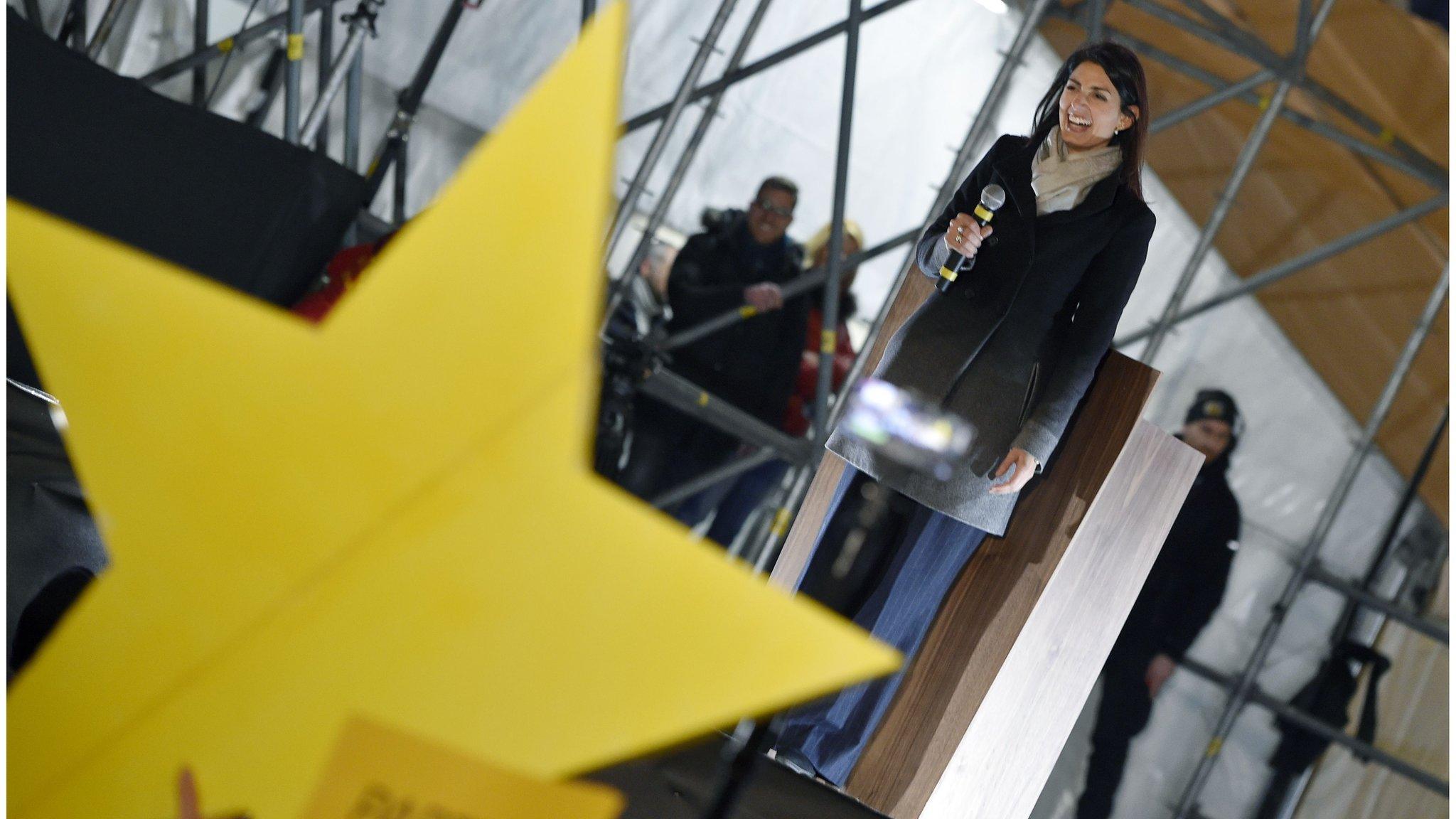Why Italy is still searching for a leader two months after elections
- Published
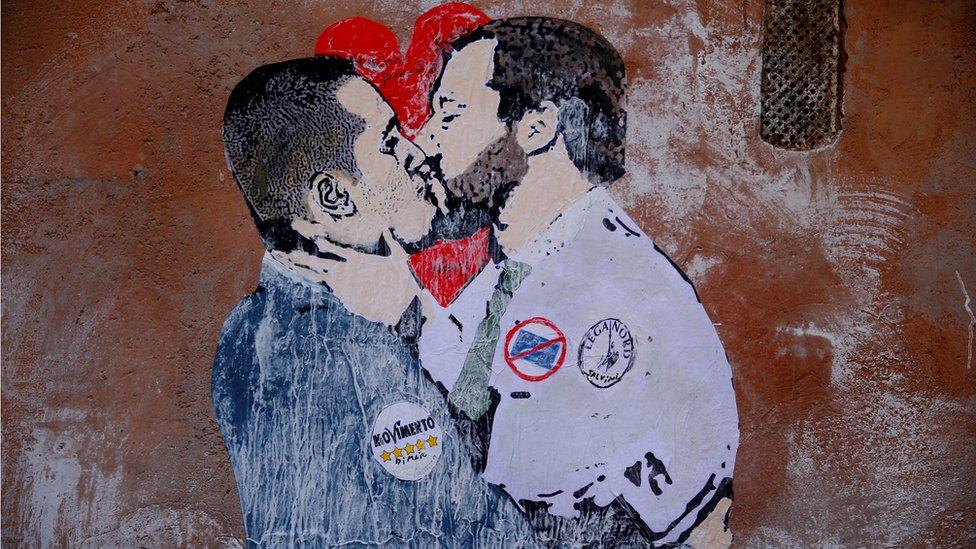
Italy has seen the rise of two rival populist leaders, Luigi di Maio (L) and Matteo Salvini, as seen in this Rome mural
Since Italy became a Republic in 1946 there's been a steady predictability to its politics.
Citizens vote, no single party gets a majority, everyone negotiates, then a coalition government is formed.
The system relies on give and take, and compromise.
For decades, this has kept things moving, and prevented the country from ever having to call a second election in the same year. Since 1946 Italy has had 19 general elections, the same number as the UK.
But, in 2018, Italy's system has got stuck.
Two rival populist groups, the anti-establishment Five Star Movement and the right-wing League party, came out ahead in the 4 March general election.
Neither of the two party leaders has any experience in national government.

Who is who?
Luigi di Maio - Five Star Movement
Five Star was co-founded by comedian Beppe Grillo in 2009, as an anti-establishment movement dedicated to fighting against corruption and professional politics.
The movement is now led by 31-year-old Luigi di Maio, a former law student and volunteer steward at Napoli football club.
Mr Di Maio is keen to show that he lives like a normal citizen. During weeks of coalition talks, he drove himself to the president's palace in a small, silver car, instead of getting chauffeured in a black limousine like traditional politicians.
Matteo Salvini - The League
The Northern League was founded in 1991 as a breakaway movement for Italy's more wealthy northern regions. In 2013, Matteo Salvini took over as leader, and turned the regional movement into a national party, aiming to lead the country it had previously wished to leave.
Matteo Salvini, 45, also claims to be a non-traditional politician. He makes a deliberate point of being ill-at-ease in a suit, barely ever doing up the top button of his shirt while wearing a tie.
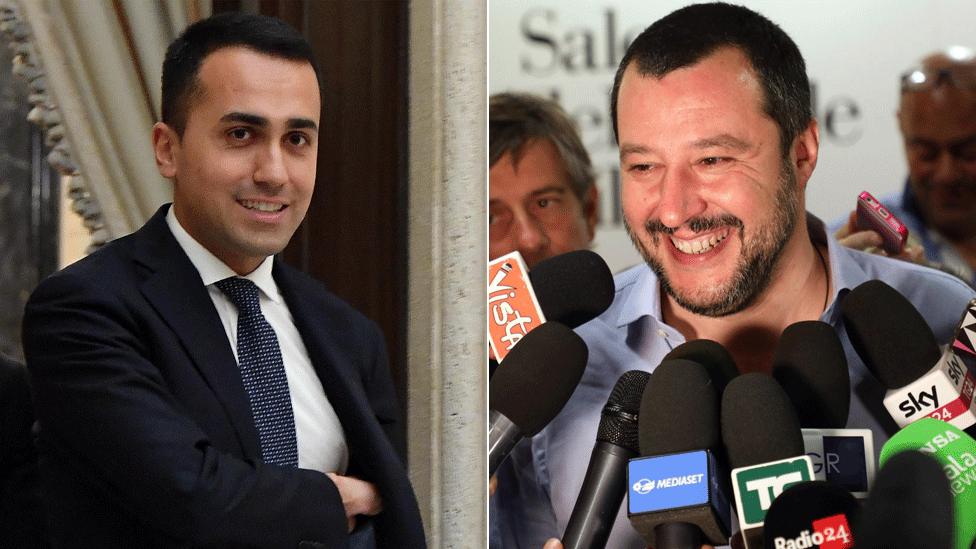
The Five Star Movement of Luigi di Maio (L) emerged as the biggest single party in the March vote while Matteo Salvini's League leads a centre-right coalition

What is different this time?
The emergence of Five Star and The League is a reflection of Italians' unhappiness with a system that has left the country with weak economic growth of 0.3%, chronic youth unemployment of around 32%, and worries about social cohesion.
During three rounds of talks after the general election, Italy's President, Sergio Mattarella, tried to work out various configurations of a potential coalition government. But no-one was ready to back down.
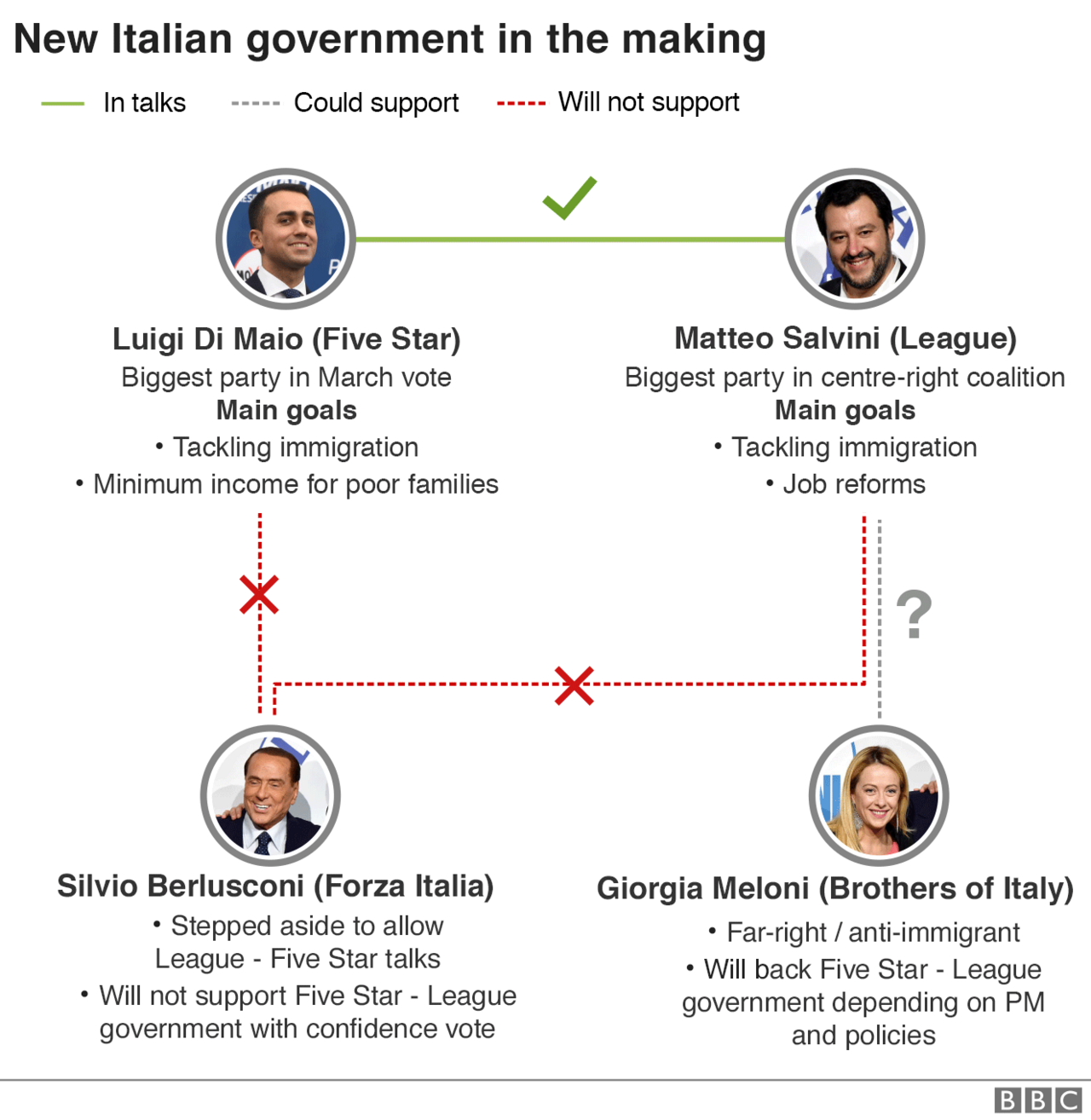
But when the president's final option - calling an unprecedented second general election in the same year - seemed almost inevitable, alliances shifted and Five Star and The League got together and worked towards forming a government.
There has been no indication as to who might emerge as the leader. But a close aide to Mr Di Maio has suggested that an independent figure could become the next prime minister.
What would a populist government mean?
In many ways, a Five Star-League coalition is a natural choice. Each party campaigned as a populist, anti-system movement, wary of Italy's current relationship with the rest of the European Union.
Their potential alliance as government partners will concern many in Brussels. The loss of Italy as an automatic pro-EU voice would be a significant shock.
Italy is one of six countries which began the European project after World War Two. The founding document of post-war union, the 1957 Treaty of Rome, was signed in Italy's capital.
Now, for the first time, one of these founding members appears on the brink of forming a government wary of the union that it helped to create.
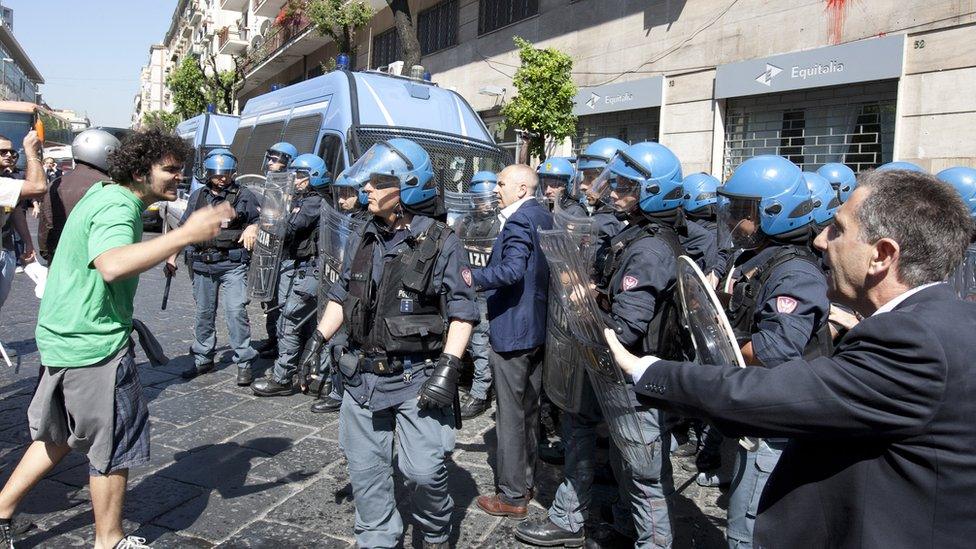
A technocrat government ran Italy in 2011-13 implementing unpopular austerity measures in response to the country's financial crisis
Five Star and The League have each called for a renegotiation of the EU's strict fiscal rules in order to fund their campaign promises - Five Star's universal income for the poor and The League's flat tax.
We don't yet know if the two parties, in coalition, will want to go further.
Brussels may be reassured to realise that Five Star has stepped back from an earlier promise to hold a referendum on the country's membership of the single currency. The League, which once promised to withdraw from the EU entirely, currently says it wants to reform the union from within.
What will happen next?
President Sergio Mattarella expects the parties to report back to him on Sunday or Monday. Then he will decide whether or not to go ahead with the formal nomination of an administration.
Mr Mattarella has warned that the next Italian government must not confront the European Union or destroy the euro.
- Published8 May 2018
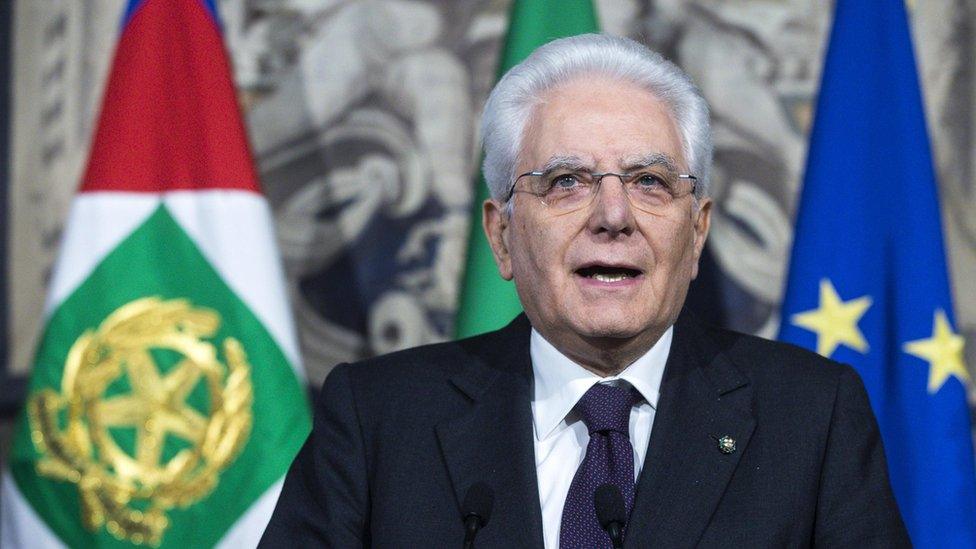
- Published5 March 2018
